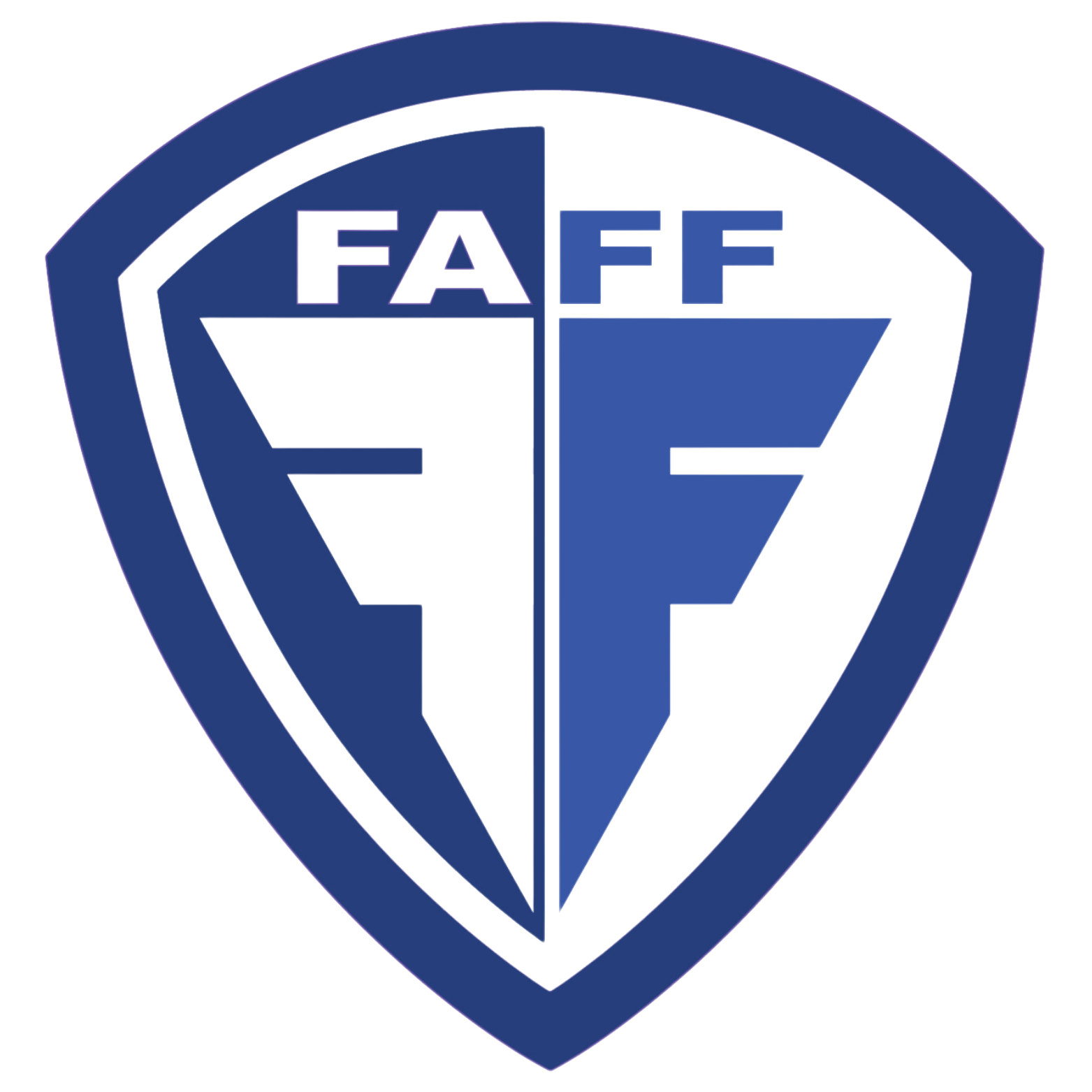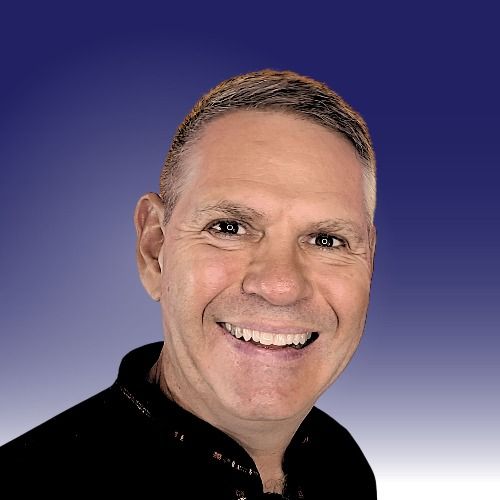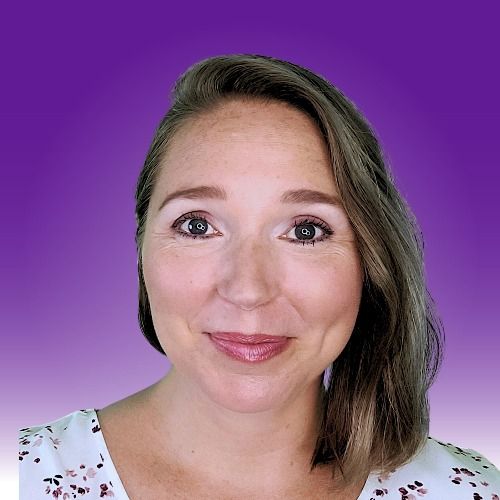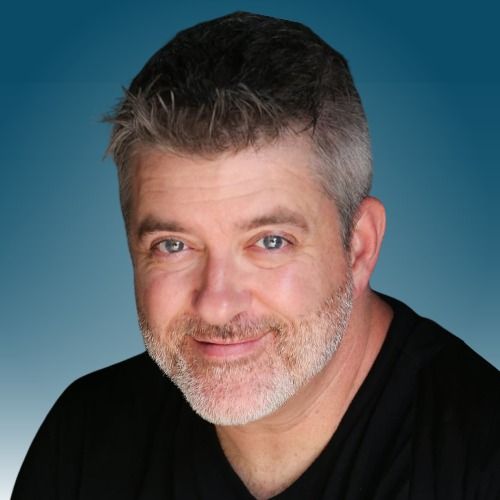Episode 26
Navigating the World of Professional Screenwriting: Insights and Advice from Cheryl McKay
Episode 26 - Navigating the World of Professional Screenwriting: Insights and Advice from Cheryl McKay
In this episode of the Faith and Family Filmmakers Podcast with hosts Jaclyn and Geoffrey Whitt , Cheryl McKay shares her journey and experiences as a professional writer, offering valuable advice and insights for fellow writers. She discusses the emotional challenges of seeing one's work adapted, the importance of collaboration and taking notes gracefully, the lucrative nature of adaptation, and practical tips for writing and organizing projects. McKay emphasizes the significance of having a clear roadmap before starting a project and the personal growth and cathartic experiences that can come from writing. Additionally, she touches on the aspect of faith in her career, mentioning a pivotal point where she believed God redirected her path back to writing. The script is replete with anecdotes, practical tips for both novice and experienced writers, and McKay's philosophical approach to writing and life.
- Welcome Back Cheryl McKay: A Deep Dive into Writing
- The Emotional Journey of a Scriptwriter
- On-Set Experiences and the Magic of Seeing Your Work Come to Life
- Adapting Stories: The Lucrative Path of Writing
- Crafting to a Budget: Practical Advice for Aspiring Writers
- Organizational Tips and Tricks for Effective Writing
- Navigating Feedback: The Art of Taking Notes
- Maintaining Priorities as a Christian Writer
- Personal Reflections on Writing and Its Impact
- Conclusion and Departing Thoughts
Since 1997, Cheryl McKay’s screenplays for television, cable, TV, new media, and inspirational feature films have attracted multiple awards, nominations, as well as top star talent like James Garner, Brian Dennehy, and Abigail Breslin. Her first film produced was The Ulitmate Gift. She co-wrote the feature films, Indivisible and Extraordinary, and most recently served as the producer/showrunner for a 6 episode TV series she wrote called These Stones, starring Madeline Carroll, Karen Abercrombie, Charlene Amoia, and Cameron Arnett. Her heart from the beginning has been to make an impact through words and change the world through writing. That’s the heart behind serving at the helm of the creative development for Stone Impact Media.
https://www.facebook.com/thesestones
The Faith & Family Filmmakers podcast helps filmmakers who share a Christian worldview stay in touch, informed, and inspired. Releasing new episodes every week, we interview experts from varying fields of filmmaking; from screenwriters, actors, directors, and producers, to film scorers, talent agents, and distributors.
It is produced and hosted by Geoffrey Whitt and Jaclyn Whitt , and is brought to you by the Faith & Family Filmmakers Association
Support Faith & Family Filmmakers Our mission is to help filmmakers who share a Christian Worldview stay in touch, informed, and inspired. If you would like to assist with the costs of producing this podcast, you can help by leaving a tip.
Enter the Faith & Family Screenwriting Awards festival
Jaclyn's Actor's Reel Script Writing Workshop: https://www.faffassociation.com/actors-reel
Copyright 2024 Ivan Ann Productions
Transcript
We're back with Cheryl McKay.
Geoff:We had a great conversation with her already and, we're looking for more insights and some, um, some specific direction and advice that she would have for writers.
Geoff:Jaclyn...
Jaclyn:thank you.
Jaclyn:Um, I was thinking, when you were mentioning about when you got into writing professionally...
Jaclyn:how did it affect you when you actually got to see your work?
Cheryl:Well, it's been different throughout my career, depending on what the project was.
Cheryl:But one caution that I was told really early on was like, understand that when you are a script writer, and you're only the writer, and you're not a producer, expect it to feel like giving up your baby for adoption, but watching someone else raise them.
Cheryl:And I know in the beginning, when I wasn't quite used to that yet, that can be very true.
Cheryl:Sometimes that's going to change project by project, depending on how involved you are, or like most of the time, at the very least, I show up and be an extra, a volunteer extra.
Cheryl:I stay out of the way.
Cheryl:I'm quiet.
Cheryl:I don't interfere.
Cheryl:I know that that's not my domain anymore, and that it's somebody else's by that point.
Cheryl:But all of them have been great, because I know a lot of times writers are banned from sets, because they think we're going to be a big pain...
Jaclyn:Exactly.
Jaclyn:I was thinking, wow, they let you come to set.
Jaclyn:That's amazing.
Cheryl:Yes.
Cheryl:The first one I just asked permission and I spent two weeks there for all of Abigail Breslin's scenes, which was cool, because that was my favorite part of The Ultimate Gift, was her whole character.
Cheryl:She's the one who was the kid that was dying of cancer, Emily.
Cheryl:And so getting to also go back to my hometown is where they were filming it.
Cheryl:So, not only was I able to throw myself in as an extra, I asked that they let my parents be extras as well in a hospital scene.
Cheryl:So, that was really fun and meaningful to see that come to life.
Cheryl:What is really neat, especially on something like these stones, is because I was writing around the resources that I knew I could possibly get, whether it was the location, the vision, the look of it, or the actors, I was able to write, um, in a way that I knew that would be to the strengths of where we were going to film, as well as to the strengths of those actors whose work I had studied or I had already worked with them.
Cheryl:And writing these roles that I knew were Bang up perfect for these people allowed me the experience of being able to go on set and watch it come to life in a way that was really rewarding because it was my vision and then some.
Cheryl:Like, it was better than my vision because then you enter that collaborative process with people you trust.
Cheryl:I was able to get a director on board, Susan Rohrer, who was my mentor when I was just a teenager watching her stuff on TV, and I wrote her a fan letter and said, how can I do what you do?
Cheryl:And I never let her go since.
Cheryl:She's one of my best friends to this day.
Cheryl:And I was able to get her the job directing this, which was great because she was so involved with me on the whole script process.
Cheryl:And where I would finish a script, I would get it to the best of my ability.
Cheryl:I would give it to her.
Cheryl:She would polish it while I moved on to episode two, and so being able to do it that way, we were already on the same page of what we wanted, and we hired people who could help us bring that to life.
Cheryl:One of the jokes, like, we were at Kappa Studios doing some of our, final color correction and, sound design, and I was laughing at jokes, and she's like, you know how fun it is to watch you laugh at your own jokes?
Cheryl:So, so it is, it's fun to be able to do that, but it is definitely not always like that.
Cheryl:And you have to be careful how much stock you put in that when you understand that if you are just a writer for hire on a project, that it really isn't yours.
Cheryl:And I do a lot of adaptive work, so, if I'm adapting something that's from a book, it's going to have stuff to it that isn't necessarily my original creation.
Cheryl:I'm just crafting how it's going to be told differently, because books don't translate immediately.
Cheryl:You have to do a lot of work to get that to work..
Cheryl:But it's a lot of fun.
Cheryl:It can be painful too if they do something that you don't like, or if they cut your favorite scene, you know, I've had that happen before, but I've also seen my favorite scene thrive.
Jaclyn:Oh, nice, So, okay, I know that you do some teaching also.
Jaclyn:When you're working with people who are learning to write based on a true story or based on a book, what is the most common thing that you have to help them to wrap their head around?
Cheryl:Well, I actually like to, teach adaptation specifically because it is the most lucrative way to make a living as a writer.
Cheryl:How rare is it to write a spec and sell it?
Cheryl:Like, I still haven't done that in my entire career, mean, one that got made.
Cheryl:So I always try to say, learn true stories, articles, um, or adapting Shakespeare, Jane Austen, whatever's in the public domain.
Cheryl:If you find a true story of somebody that you know that you can get the rights to, that's even cooler.
Cheryl:I've actually, been working on a project like that myself.
Cheryl:But when you consider how risk averse Hollywood is, and if you look at the top 100 movies in most categories, how many of those are adapted works?
Cheryl:And then eventually there are also, sequels or prequels.
Cheryl:They're always based on something because Hollywood very rarely wants to take a chance on something that doesn't have a track record or a following already.
Jaclyn:Yeah, it's about 28 percent actually.
Jaclyn:I, did look it up a while back.
Jaclyn:Um, if you look at how many movies are made that are based on a book, it's about 28 percent.
Jaclyn:Somewhere around there.
Cheryl:Wow.
Cheryl:That actually low me.
Cheryl:I know 90 percent of my paid work has been that way, but maybe that's just the clients that I happen to get.
Cheryl:Because normally what'll happen is a producer gets the rights to some kind of IP, or book, or story, or novel, and they need to hire somebody for it, and that's the most jobs that we can try to get.
Cheryl:And same with like, uh, based on a true story.
Cheryl:The percentage is around the same.
Cheryl:Yeah.
Cheryl:Yeah.
Cheryl:Well, that's, still like one in four, basically.
Cheryl:Right?
Cheryl:hmm Mm hmm.
Cheryl:So
Jaclyn:that's still a lot.
Cheryl:Yeah.
Cheryl:And I think it's fun because you're not facing a blank page, even though, like, Never the Bride would be considered an original, spec of mine, and I've done those.
Cheryl:I think, really, the spec world is probably most common in the Christmas movies.
Cheryl:All those cable networks that are cranking out all these Christmas movies are not normally based on books . So, that's one area where we could do something a little more original.
Jaclyn:And what budget do you think is like the most common budget to be able to sell a movie ? Like what do you typically end up writing in?
Cheryl:Are you talking about for production or
Jaclyn:for...
Jaclyn:Yeah, yeah.
Jaclyn:as far as the production, uh...
Cheryl:Oh, like trying to write to a budget?
Jaclyn:Yeah, yeah, exactly.
Cheryl:Well, if you're just getting started or you only have a credit or two, try to write something that can be done as low as possible.
Cheryl:Because, especially these days, people aren't spending nearly as much money on movies as they used to.
Cheryl:There was like, you know, you'd see a romantic comedy that would have gotten made in the 2000s that might have cost 20 million, because they had two big stars that were in it.
Cheryl:That just doesn't happen anymore.
Cheryl:So I try to write things that could be made no less than a million, because I think it's a little hard to make something of quality if you don't at least put a million into it.
Cheryl:And that's a very common cable budget 1 to 1.
Cheryl:5 or 2 at the most.
Cheryl:Um, for feature films, probably about 3 million.
Cheryl:because once you jump a tier, everything goes up so expensively after those, two benchmarks.
Jaclyn:Okay.
Jaclyn:As we're getting into advice for writers, what other kind of advice would you offer writers?
Cheryl:Well, one of my favorite things that I love to share is...
Cheryl:I'm a big fan of colored post its for doing my outlining.
Cheryl:I would get lost if I didn't use those.
Cheryl:And I also set up a binder, and then I'll explain how I use the color in it, like, I'm brainstorming ideas for season two of these stones.
Cheryl:I've had so much fun just trying to think through what we might do.
Cheryl:It's more like, I'm not tasked to do that yet, um, but whenever ideas come to me, I love to write them down.
Cheryl:So I usually try to keep one binder for every project.
Cheryl:It helps keep me organized, and you'll see behind me on my shelf, there's a bazillion of them because there are.
Cheryl:And each one represents a different job or project, um, or some kind of work in progress.
Cheryl:Those are my, spec projects that I almost never have time for because I'm almost always working, which is a good thing, but then I also at some point have other ideas.
Cheryl:Like, I might have a holiday binder that's all Christmas movie ideas . Um, or one that, like, I worked for Superbook for a few years and I wrote five of their episodes and I'd have a binder for Superbook and I would keep the show Bible from them and the research on maybe some sample scripts they gave me to follow because I was coming into that in season four and five, so it helped to do that...
Cheryl:to keep it in an organized place to have everything for each project.
Cheryl:And so in the binders, usually I'll have, you know, room for meeting notes and then brainstorm ideas.
Cheryl:And then I keep a section for scenes, which I'll get into in a second.
Cheryl:And my character breakdowns, I'll do my main characters and my supporting characters, research that might...
Cheryl:I mean, I almost always write something that has some kind of research, like Song of Spring Hill had a lot of mining research of what happens underground, and interviews that I did with people, I might save them there as well, as just any setting, information.
Cheryl:Now, the reason I switched to post it notes, I know index cards are very common, but I one time was on a plane and I dropped them and they lost the order and I was like, okay, forget this from now on I'm going to use it where I can stick it in a binder.
Cheryl:I'll take, a white piece of paper and write like act one.
Cheryl:And then I'll, try to write all of my ideas without thinking what order they're going to go in first.
Cheryl:I'll just stick the post its on blank paper first.
Cheryl:But I pick different colors for every storyline, so that every time I'm in a subplot that might have been assigned orange , like I might have had a storyline with God that was orange, or, her job at her proposals company might have been pink, and then her love interest number one might have been green, and the love interest number two might have been yellow.
Cheryl:When I first am brainstorming a script that I haven't started yet, I don't try to form it into any particular order.
Cheryl:I'll just write every idea I can possibly think of, but I make sure I put it on the right color.
Cheryl:Then, when it's time to put it in the binder, on the stuff that's divided by Act 1, Act 2, Part 1, midpoint is where I usually break that.
Cheryl:Act 2, part two, and then Act 3, I start trying to move those post its into some semblance of an order.
Cheryl:And the visual part I love about the color is that if I haven't seen orange lately, I might be like, well, I might be missing a beat with God here.
Cheryl:Should I take one from later in the script, or do I need a new one?
Cheryl:And it's a really good visual way to see that.
Cheryl:And it also travels well.
Cheryl:That's why I like to do it that way.
Cheryl:So I suggest...
Cheryl:I know people think I can be a little crazy when it comes to being too overly organized, but if I don't know the end of my story before I start writing, I usually might crash and burn at the, like, I'm really good at act one, and then I might crash and burn partway through Act Two.
Cheryl:So, that's why I like to be very, organized in advance.
Jaclyn:Yeah.
Jaclyn:And, and I've heard that from a lot of writers that if you don't know the end, if you just start writing...
Jaclyn:like, you can write an amazing setup and then you get lost around page 40.
Cheryl:Yeah And how often do we rewrite Act One?
Cheryl:And Act One's always so good, because you just, like, procrastinate, and you, like, go back and fix it, and then you're like, Oh, but I don't want to write Act Two.
Jaclyn:Yeah, yeah.
Jaclyn:Oh, I know.
Jaclyn:I know.
Jaclyn:I rewrote act one multiple times, like when I was first getting into writing and I finally understood how to write an act one.
Jaclyn:I rewrote that one so many times.
Jaclyn:And I thought, you know, I actually need to finish this story.
Jaclyn:So I had to finish writing the rest.
Jaclyn:But yeah, act one's fun.
Geoff:Cheryl, what are some challenges that you, think would be worth discussing for our listeners.
Geoff:What do you have to say that people might want to watch out for, some cautions?
Cheryl:Well, I think for writers in particular, one very difficult process is the taking notes . And like I mentioned in the other broadcast about sometimes, it can feel like giving someone up for adoption and watching someone else raise it and that, can be a little bit difficult.
Cheryl:But, we have to be collaborative and we have to be able to take notes . And I know that we love to say don't take them personally, but they're always going to be personal because we are personal when we're putting ourselves into our writing.
Cheryl:So what we have to do is try to shift our thinking to What is the note?
Cheryl:Is it a good note?
Cheryl:Sometimes when they try to pitch solutions, those solutions may be what is difficult because we as the writer may go, we know that's not going to work.
Cheryl:But if you can try to get underneath what the note is talking about in the first place, they may not need you to take their solution, but they need you to fix the problem.
Cheryl:And so, um, it can help to be able to open your mind up to say, all right, what's the heart behind this and how can I solve it in a way that still serves the script that I have, so that it doesn't throw and derail everything off?
Cheryl:Sometimes I have found that getting notes that I may not have liked in the beginning can bring me to a place where I like the script at that point so much better than as it was originally delivered.
Cheryl:So that can be important.
Cheryl:The other hard thing, sometimes you have to figure out how to take a note from somebody who may not have read your script, and sometimes that can be pretty obvious that someone is just an executive who feels like they need to say something, but you can tell that there's something off in it, because they may have read page two, and then they say something about that that unravels something.
Cheryl:I'm not afraid to pick my battles in terms of like, if I get five notes , and I don't like two of them, but I'm fine with three of them, I try to really talk through the ones that I love and what I can do with and why I can embrace them.
Cheryl:But if there's something like, if they say, Hey, could you just cut the scene?
Cheryl:And the writer's going to know the script better than anybody else.
Cheryl:If you know cutting that scene is going to unravel, three scenes that follow it, you can be willing to have that discussion and just say, do you realize if I do that we're going to lose this, this, and this?
Cheryl:And then a lot of times they'll say, oh, but I loved that scene.
Cheryl:Oh, and I love that scene . Well then let's talk about how not to cut something that is the setup for this payoff that you do like.
Cheryl:And if you've already told them yes, yes, yes to these other three things that came before it, they may be more willing to listen to you on the kinds of things that you're struggling with, that you're afraid would harm the work if you did take the note as is.
Geoff:It's a conversation instead of being defensive.
Cheryl:Yeah..
Cheryl:and it's a hard thing to learn.
Cheryl:And the solution for it really is to become a producer of your work, but we're not all there at the beginning and we're not all going to want to produce everything.
Cheryl:Like, I have projects I would love to just sell.
Cheryl:I have no interest in producing them because now that I've produced a TV show, I know how much hard work that is.
Cheryl:But becoming the person who is also a producer, you may have more of a voice and yet you still have to be collaborative with your teammates and listen to what they have to say.
Jaclyn:That's some great advice.
Jaclyn:And as we close off this advice section, is there anything else, like, let's say when you were just getting started, is there anything else that we haven't already talked about that you're thinking, okay, it would be really great for writers to know this?
Cheryl:Well, a couple of things, like, if a writer is a believer, and you're coming at this wanting to serve God with your work.
Cheryl:I thought I was changing professions to being a high school teacher in LA.
Cheryl:I was working at a charter school.
Cheryl:I was studying Christian counseling courses, and I really thought of a shift.
Cheryl:I knew that God needed me to lay it down because I had made it too important.
Cheryl:And he brought it back to me when I didn't even really want it anymore, it was kind of ironic.
Cheryl:And was in the form of The Ultimate Gift.
Cheryl:He opened the door for me to actually write that film.
Cheryl:I wasn't even really...
Cheryl:it wasn't even on my radar anymore.
Cheryl:I thought I'd lost the job actually.
Cheryl:I'd already pitched for it a year earlier, but they came back to me after a year and said , we want to give you this job.
Cheryl:But it was neat it was so neat to be able to take it when I didn't care as much, but I was much more ready for it.
Cheryl:And one example is, My father had to have open heart surgery, and it was a surprise.
Cheryl:He almost had a heart attack.
Cheryl:He was only 60.
Cheryl:I flew to North Carolina for the surgery.
Cheryl:That's how the producer found out I was home for Ultimate Gift and said , while you're here, I want to meet with you.
Cheryl:And I didn't even want to go, cause I wanted to hang out with my dad and help him with his recovery.
Cheryl:But my mom finagled a way to get me to that meeting.
Cheryl:It was really cute.
Cheryl:She took the call and said, she'll be right there, type thing.
Cheryl:And so I borrowed her car and went to the meeting and I literally walked out with a WGA job writing that film.
Cheryl:It was such a blessing.
Cheryl:And I was a different person having walked through my dad's sickness , and the gift of a day is a big theme in that movie, and I couldn't have written about that the same a year ago as I could when God blessed me with the job.
Cheryl:So that's one big thing, I always like to encourage writers to be careful because it can be hard to make it in this industry enough, but it's especially hard if you don't have the favor of God because we make it more important than Him.
Jaclyn:Right.
Jaclyn:That's wonderful advice.
Jaclyn:Thank you.
Jaclyn:So, how has writing affected you as a person?
Jaclyn:I mean, everything we get involved in is going to, affect us in some way.
Jaclyn:So, having written for so long, how has this affected you as a person?
Cheryl:Normally, I try to choose projects that I know will have some kind of a good effect on me, or maybe something in an area that I need to grow, or change, or as part of my own personal story that I need to share with the world when I'm ready to do that.
Cheryl:And I have written quite a few of my life stories into scripts.
Cheryl:But when you're willing to kind of put your, like, bleed on the page, as they say, um, and there's an episode of These Stones that's based on, a heartbreaking story of my husband and I, that we went through that was the hardest part of our...
Cheryl:we have a wonderful marriage, but we had a very difficult part with infertility.
Cheryl:And we decided to take an episode and put that journey in a character, and bring in the character of Sarah from Sarah and Abraham in to help a girl who was struggling with that same issue.
Cheryl:And we used a lot of our real life story.
Cheryl:I got to be in the episode.
Cheryl:I play an extra as a nurse in the very first scene that we shot.
Cheryl:But even writing that episode, I would say was very cathartic for me.
Cheryl:And wrestling with those questions of, God, why is it, that you bless some people one way and not others, and who's deserving, and you know, those kinds of gritty questions that you get into are the kinds of things that I tried to put in that episode.
Cheryl:I think all of us should be open to that, not that every story's gonna be your life story, but we should all be open to sharing in a way that's gonna relate to people because we're being real.
Jaclyn:Mm hmm.
Jaclyn:Thank you so much for sharing that.
Jaclyn:I want to thank you for joining us today.
Jaclyn:Uh, I've really enjoyed getting to know you and hearing the advice that you have to share.
Jaclyn:I'm like, you know, taking notes for myself and
Cheryl:Thank you
Geoff:It's been a great conversation.
Geoff:Hopefully sometime in this coming year, we'll see you at a festival or somewhere, and meet in person.
Cheryl:That would be lovely.
Cheryl:I really appreciate you guys taking the time.
Cheryl:It's nice to be with you and if I could share one last verse with everybody that I love for writers.
Cheryl:It's Ephesians 2:10.
Cheryl:For we are God's workmanship created in Christ Jesus to do good works which God prepared in advance for us to do.
Cheryl:And my hope for writers is that you figure out what those are.
Geoff:Thank you.
Jaclyn:Wonderful.
Geoff:McKay.
Cheryl:Thanks.
Jaclyn:Thank you.





